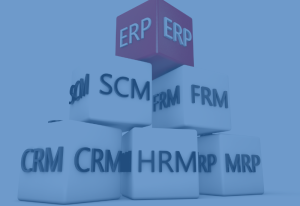
The property management industry can be complex and demanding, involving a range of tasks such as managing properties, tenants, rent, maintenance, and repairs. That’s why property managers often turn to ERP (Enterprise Resource Planning) systems to streamline their workflows and improve efficiency.
Here are some of the ways that an ERP system can support property managers:
- Centralized Data Management: An ERP system can consolidate all data related to properties, tenants, payments, and maintenance, making it easier for property managers to access and manage information from one centralized location. This eliminates the need for manual data entry and reduces the risk of errors.
- Financial Management: An ERP system can provide real-time financial information, including rent collection, overdue payments, and expense management. This helps property managers to better track financial performance, forecast revenue, and reduce financial risks.
- Tenant Management: With an ERP system, property managers can efficiently manage tenant leases, renewals, and tenant requests. This helps to reduce vacancy rates, improve tenant retention, and increase tenant satisfaction.
- Maintenance and Repair Management: An ERP system can help property managers to track and manage maintenance and repairs across multiple properties. This includes tracking maintenance requests, assigning tasks to vendors, and tracking repair costs. This can improve maintenance response times and reduce downtime, which can improve tenant satisfaction.
- Reporting and Analytics: An ERP system can provide comprehensive reporting and analytics capabilities, allowing property managers to better understand their business performance and identify areas for improvement. This can help property managers make more informed decisions about their properties, such as when to invest in new properties, how to optimize rent pricing, and where to allocate resources.
In summary, an ERP system can provide property managers with a range of benefits, including centralized data management, improved financial management, better tenant management, streamlined maintenance and repair management, and advanced reporting and analytics. By implementing an ERP system, property managers can improve efficiency, reduce costs, and enhance their overall management capabilities.




